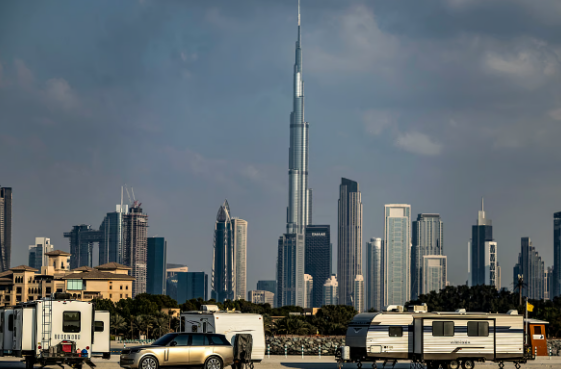The Gulf Cooperation Council (GCC) economies are expected to outpace broader Middle East and North Africa (MENA) regional growth over the next two years, according to the International Monetary Fund’s (IMF) latest Regional Economic Outlook released Thursday.
Driven by strong energy exports, sovereign wealth fund investments, and structural reforms, GCC nations are projected to grow by 3.0% in 2025 and 4.1% in 2026. In contrast, overall MENA growth is forecast at 2.6% and 3.4%, respectively, during the same period. Non-oil exporting economies in the region are likely to see more modest expansions of 1.4% in 2025 and 1.8% in 2026.
The IMF noted that the direct economic impact of the ongoing global tariff war on the region is “generally limited,” due to exemptions on energy exports and limited non-oil trade exposure to the U.S. However, indirect effects such as slower global demand and financial tightening could pose broader challenges, particularly for countries carrying high levels of public debt.
“In most GCC countries, favourable oil prices and domestic investments, particularly by sovereign wealth funds in countries like Saudi Arabia, have boosted private consumption and investment,” the report stated. Foreign direct investment (FDI) in the region rose by nearly two percentage points of GDP in 2023–24 compared to pre-pandemic levels, a signal of improving business conditions.
GCC growth is further supported by OPEC+’s decision to extend voluntary oil production cuts through April 2025, with a gradual easing expected by the end of 2026. Non-oil sectors, though revised down due to softer oil prices and recalibrated investment plans, are still expected to benefit from infrastructure development and economic diversification efforts.
“The expansion of natural gas in countries like Oman, Qatar, Saudi Arabia, and the UAE will support medium-term growth,” said Jihad Azour, IMF’s Director for the Middle East and Central Asia, during a media briefing. He warned, however, that falling oil prices could worsen fiscal positions for exporters, even as importers benefit from lower energy costs.
Azour highlighted that the UAE’s two main economic hubs—Abu Dhabi and Dubai—are expected to see strong growth. Abu Dhabi is projected to grow by 4.2% in 2025 and 5.8% in 2026, bolstered by recovering oil production and major infrastructure investment. Dubai, supported by a thriving financial sector, is forecast to grow 3.3% and 3.5% over the same period.
Despite global headwinds and regional uncertainties, the IMF report underlines the resilience and adaptability of GCC economies in navigating shifting economic conditions.


